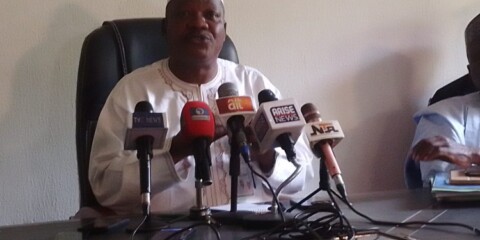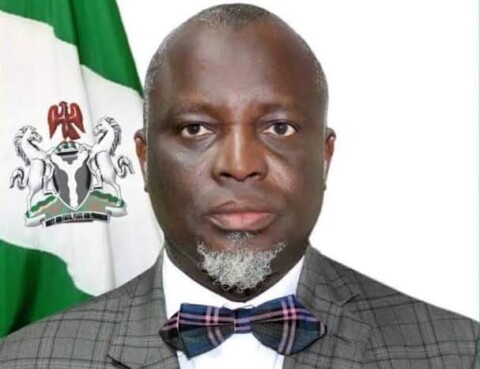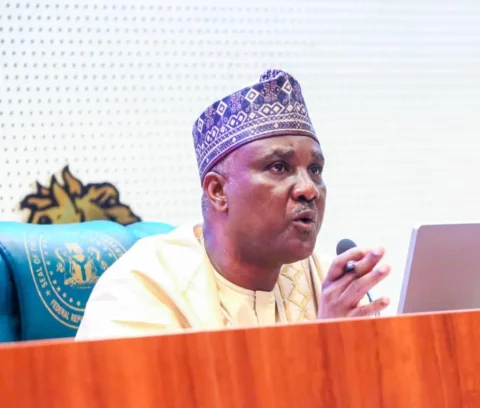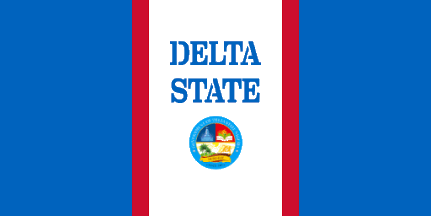The Federal Government has voiced concerns over the excessive number of professional bodies involved in accrediting university courses, describing the practice as unsustainable and detrimental to Nigeria’s tertiary education system.
Speaking at a stakeholders’ meeting in Abuja, the Minister of Education, Dr. Olatunji Alausa, decried the involvement of over 25 professional bodies in the accreditation of university programmes. He described the situation as chaotic and a violation of the mandate of the National Universities Commission (NUC), the sole body authorised by law to accredit academic programmes in Nigerian universities.
Alausa highlighted how some of these professional bodies even go as far as shutting down university programmes without consulting the NUC. He warned that this growing trend not only undermines institutional autonomy but also imposes unnecessary financial and logistical burdens on universities, many of which are forced to cover the costs of accreditation visits.
According to him, “Accreditation should not be turned into a profit-making venture. If you want to accredit, go and accredit. It’s not the university’s duty to fund your process.” He emphasized that accreditation remains the statutory responsibility of the NUC and called for a balanced system that maintains academic standards without draining public resources.
He added that the number of accrediting bodies has grown from fewer than ten decades ago to over 25 today, a development he attributed to unchecked modernization and the misuse of regulatory powers.
The minister also raised concerns about how these practices limit access to education for millions of Nigerian youths. “We have a country of 220 million people, 70 percent of whom are under 30. We must not let accreditation become a barrier to access,” he said.
Citing data from the Joint Admissions and Matriculation Board (JAMB), Alausa noted that several universities, polytechnics, and colleges of education received fewer than 50 applications each, partly due to restrictive accreditation policies enforced by some professional bodies.
Also speaking at the meeting, JAMB Registrar, Professor Is-haq Oloyede, echoed the minister’s concerns. He highlighted the contradictions between the accreditation standards set by the NUC and those of professional bodies. “NUC may require 60 percent of staff to have PhDs, while ICAN comes the next week and says it doesn’t care about PhDs, but wants professionally certified lecturers,” he said.
Oloyede said this overlapping and contradictory approach must be resolved urgently. He suggested the adoption of models from other countries where universities train students while professional bodies certify them after graduation, or where both collaborate through a joint process.
He added that in Nigeria, some professional bodies have abused their legal backing, using influence at the National Assembly to obtain authority to conduct independent accreditations, leading to confusion and conflict within the education system.
NUC Executive Secretary, Professor Abdullahi Ribadu, acknowledged the problem and attributed the clash to poor communication. He explained that while the NUC sets minimum academic standards and monitors compliance, professional bodies have increasingly assumed regulatory roles beyond their mandate.
Ribadu said some even attempt to shut down university programmes, a power not granted to them. “You don’t close what you didn’t open,” he stated. Instead, he noted that when NUC denies accreditation, it simply stops further admissions, allowing existing students to complete their programme.
He pledged that the NUC would work with professional bodies to harmonise the accreditation process and align with global best practices.
Meanwhile, the Registrar of the Council of Nigerian Mining Engineers and Geoscientists (COMEG), Professor Zacheus Opafunso, defended the role of professional bodies. He insisted that they have a responsibility to ensure that graduates meet industry standards and should continue conducting accreditation exercises specific to their disciplines.





